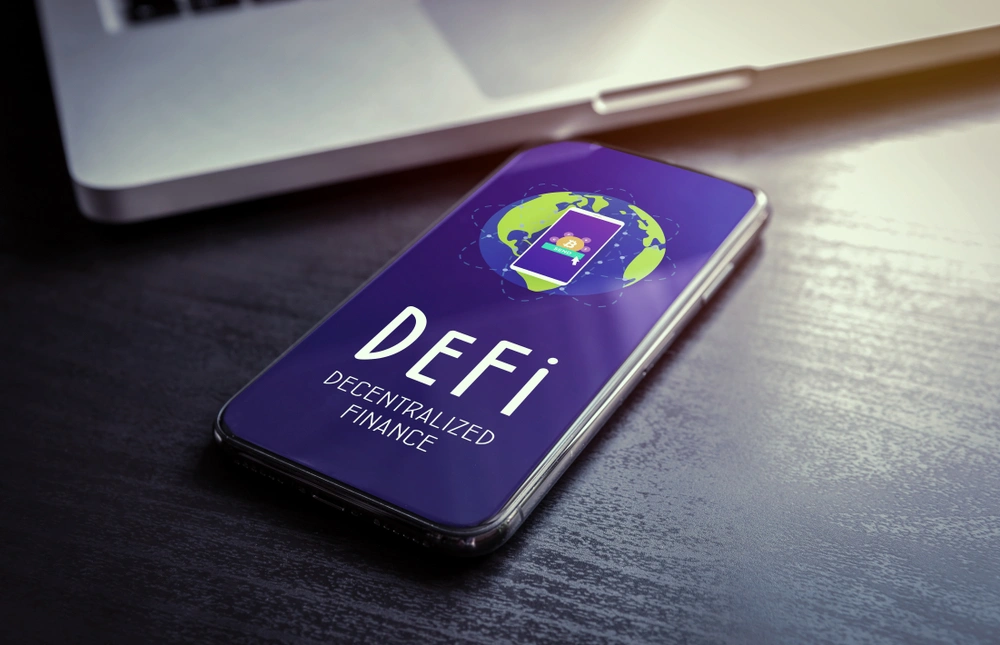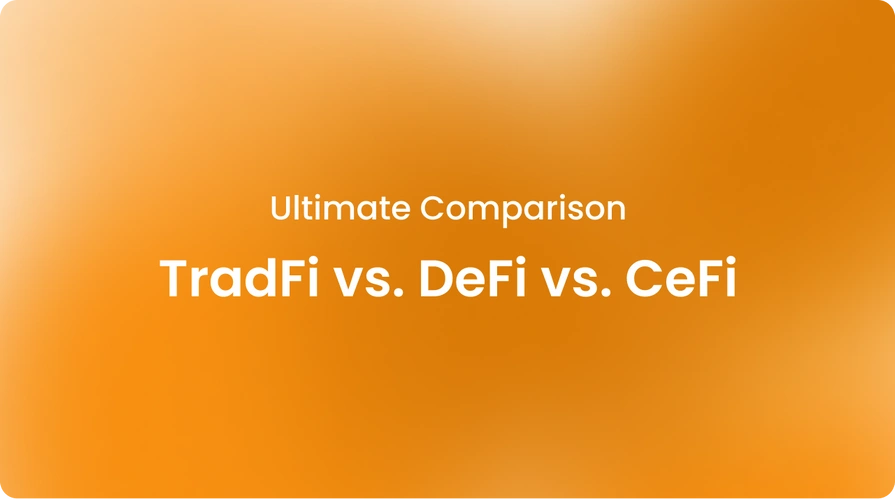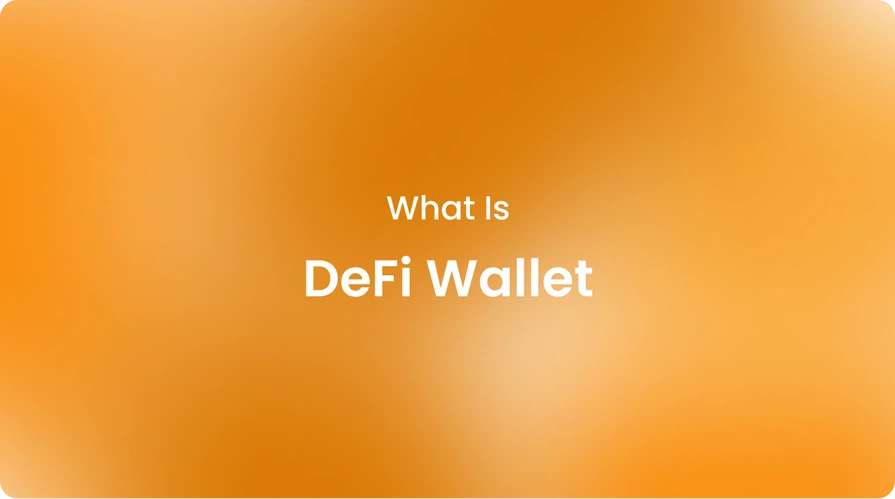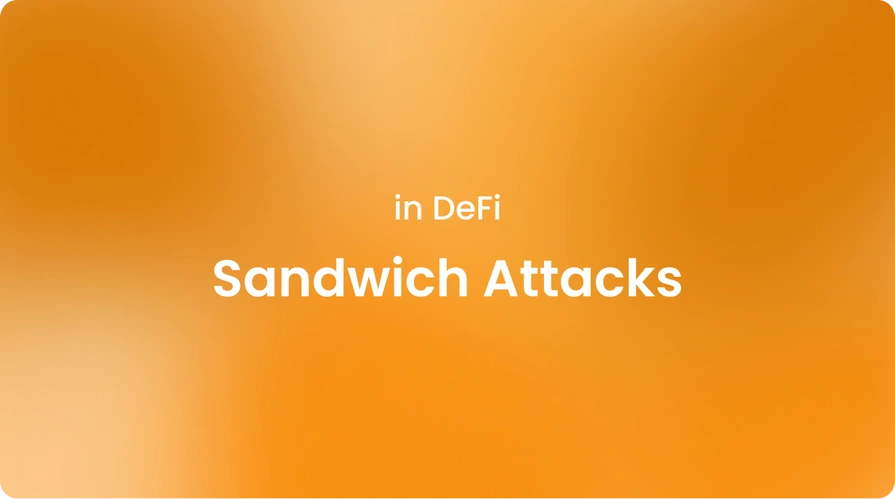|technology, knowledgehub
What Is Decentralized Finance (DeFi)?
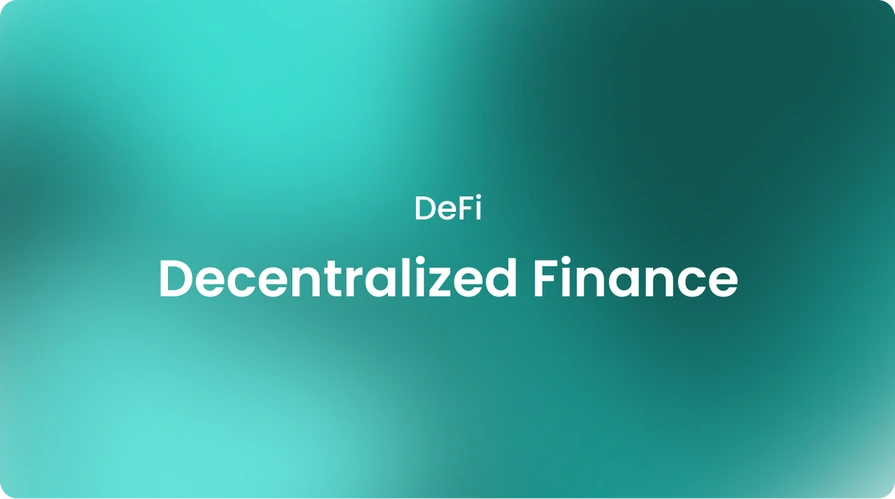
Decentralized finance, commonly referred to as "DeFi," has garnered significant interest in recent years. DeFi refers to financial applications that operate using blockchain technology and decentralized consensus rather than relying on centralized institutions.
Networks of users validate transactions in a DeFi system, rather than relying on a central authority like a bank or government. This provides several advantages for users. At its core, DeFi aims to be a more accessible, transparent, and unrestricted new financial system.
In this article, we will explore what DeFi is, its uses and benefits, its potential impact on traditional finance, and how one can get involved. By the end, you'll understand why many view DeFi as an inevitable part of our increasingly digital future. Let’s start with the basics!
What is DeFi for beginners?
Smart contracts, programs stored on a blockchain, carry out certain functions automatically when predefined conditions are met, forming the core of DeFi. For example, a smart contract could facilitate a loan by storing the loan amount and repayment schedule on the blockchain.
If repayments are late, the contract could automatically liquidate the collateral. This removes the need for centralized middlemen to enforce agreements. Peer-to-peer interaction and automation are what empower DeFi's decentralized nature.
Many blockchains now support smart contract capabilities, expanding the reach of DeFi beyond Ethereum. This competition has helped drive rapid innovation as developers leverage each network's unique strengths, whether that's scalability or gas fees.
Today, there are thousands of decentralized applications, or "dApps," powering a variety of financial use cases, as we'll explore next. Before diving into more details, make sure to check out “Decentralization” and “How Does Blockchain Work?”.
What are the advantages and disadvantages of DeFi?
With its emphasis on security, transparency, and accessibility, DeFi does address some limitations of traditional finance. For example, decentralization removes the censorship risk and single points of failure that come with centralized authorities.
This autonomy could potentially increase financial inclusion by expanding access to unbanked populations, where over 1 billion adults worldwide still lack bank accounts, according to World Bank data.
However, true decentralization also comes with new risks. Smart contracts are complex pieces of code prone to vulnerabilities that have already led to high-profile hacks and losses.
Further, regulatory clarity around DeFi is still evolving, which adds legal uncertainty. Then there's the operational challenge of accessing private keys and ensuring digital asset security in a self-custody model.
As with any emerging technology, early DeFi adopters face a risk-reward tradeoff. By understanding both advantages and limitations, participants can optimize their strategies to benefit from new opportunities while mitigating threats.
The potential of an open, global financial system independent of political borders has many excited about DeFi's long-term promise. Make sure to check out “TradFi vs. DeFi vs. CeFi” for more information about the supremacy of DeFi over other types of finance models.
What are the uses of DeFi?
Common DeFi uses include borrowing and lending digital assets for interest, exchanging crypto tokens instantly on decentralized exchanges, earning yields through liquidity provision, and using decentralized banking services like stablecoin savings accounts.
Revenue-generating developers are continuing to build DeFi applications that autonomously move value without intermediaries taking a cut. This has huge implications, especially for crypto payments and microtransactions online.
Is DeFi a threat to banks?
It's true that DeFi poses threats to certain banking revenue streams and creates alternatives for services like payments, lending, and asset management. However, traditional banks also benefit from the increasing digitization of assets and see DeFi as an opportunity rather than an existential risk.
"Crypto-aware" financial institutions and those experimenting with DeFi stand to gain more than those denying change. In reality, a hybrid model may emerge where DeFi enhances rather than replaces legacy banking.
Is DeFi mining?
Unlike crypto mining, which requires powerful computers, DeFi does not have a mining process in the traditional sense. However, through smart contract protocols, DeFi enables new earning opportunities that resemble mining.
By depositing crypto assets into lending and borrowing protocols or supplying liquidity to DEXes, users can "earn yield" or interest through automated crypto staking and lending activities. Some people conceptualize these passive income methods as "DeFi mining."
But technically, DeFi protocols do not solve mathematical puzzles or produce new crypto coins; they simply match lenders with borrowers and enable crypto trading through liquidity provision. The underlying blockchain may be mineable through proof-of-work.
Is DeFi a wallet?
While DeFi protocols can be accessed through crypto wallets, it is important to note that DeFi itself is not a type of crypto wallet. DeFi refers to the suite of financial applications, while wallets are the interfaces to interact with them.
Digital wallets are software programs that store private keys and interface with the blockchain, allowing users to interact with DeFi applications. Most commonly, DeFi wallets are referred to as non-custodial types of crypto wallets.
They hold tokens and digitally "sign" transactions submitted to the network. To utilize lending pools, crypto exchanges, and other DeFi services, users first need a crypto wallet compatible with that blockchain.
Wallet providers like Cryptobunq support interfaces on the commonly used Ethereum network. By connecting your wallet, you can then supply tokens to smart contracts and execute peer-to-peer transactions through DeFi.
Cryptobunq is a secure crypto service provider that you can trust for secure custody and wallet, exchange API, tokenization, batch payments, node as a service, checkout and invoicing, and more crypto and blockchain solutions. Explore our case studies to learn more about our services!
Is the DeFi wallet safer than the exchange?
Generally speaking, non-custodial DeFi wallets where you control your private keys are safer than keeping cryptocurrency on centralized exchanges since exchanges remain prone to hacking risks. However, DeFi does carry security risks of its own, like phishing scams and smart contract vulnerabilities.
The ideal solution is to only keep small amounts needed for day-to-day DeFi usage in a hot wallet, with the majority held in cold storage for long-term preservation of value. Overall security also depends on the individual strength of passwords and vigilance against social engineering.
How does decentralized finance make money?
DeFi platforms typically make money through transaction fees for swaps, lending and borrowing, and other operations on their protocols. Fees are usually very small by design to promote more transactions and activity across the crypto ecosystem.
Projects may also generate revenue through floating exchange rates, interest rate spreads, governance, or utility tokens if they set aside a portion of the supply.
But profit is not the only purpose; many pioneering DeFi teams emphasize open access and growing the infrastructure for future advancement.
Who benefits from DeFi?
Crypto users stand to benefit from near-frictionless value exchange, new crypto investment opportunities, and regaining control over their data and funds. Traders benefit from 24/7 markets and automated strategies. Developers can create innovative apps by tapping into open financial APIs.
Emerging markets disproportionately lack access to banks—DeFi offers financial inclusion. All of society also benefits long-term from the transparency, efficiency, and resilience of an open, global financial network.
As digitalization accelerates globally, decentralized finance promises to empower billions by reducing barriers to participation in the future economy.
Is decentralized finance the future?
It's undeniable that interest and growth in DeFi show no signs of slowing down. From $1 billion in total value locked in early 2020 to over $200 billion secured today across many protocols, the rapid expansion points to a high degree of confidence in this burgeoning field.
While regulations and widespread adoption hurdles remain, venture funding continues to pour in, and new entrants emerge constantly. Even traditional finance firms are exploring DeFi integrations.
All signs indicate decentralized finance systems will play an increasingly important role as trustless value exchange on an open, global scale becomes a reality. DeFi's peer-to-peer underpinnings will shape finance going forward, whether by fully replacing incumbent models or creating hybrid solutions.
What is the best DeFi platform?
There's no single definitive "best DeFi platform," as the space comprises many different applications, each optimized for particular use cases.
Cryptobunq is a crypto-friendly digital bank offering various services in crypto and blockchain and providing the benefits of decentralized finance and applications.
How do I invest in DeFi?
To invest in DeFi, the main steps are to first purchase Ethereum or another liquid blockchain token, then transfer it to a non-custodial crypto wallet. From there, you can begin using decentralized applications like lending protocols, DEXes, stablecoins, and more.
Gaining some exposure to core projects through governance tokens is another approach. Overall, only invest amounts you're prepared to risk, as DeFi remains an emerging space. But for the open-minded, it opens new possibilities for participation in this growing financial revolution.
What is the future of DeFi?
As DeFi protocols continue maturing and finding product-market fits, its future seems bright. Interoperability between chains will grow via bridges and aggregation layers. Mainstream adoption will rise as UX improves and regulations provide clarity.
DeFi may even serve as the infrastructure for new tokenized business models across industries and real estate tokenization on the blockchain.
The ceiling is high for a persistent movement building universal, permissionless, and transparent financial plumbing that can unleash human potential on a truly global scale.
This open, paradigm-shifting technology suite continues to scale, changing how value is created and exchanged worldwide, bringing exciting times ahead.
The bottom line
Decentralized finance is disrupting traditional banking and financial services by leveraging blockchain technology's core advantages of transparency, autonomy, and accessibility.
Though still early, its rapid development and mainstreaming promise to vastly improve financial inclusion while reducing costs through a transparent peer-to-peer model.
The future looks promising as new projects expand the DeFi frontier to empower greater productivity and prosperity worldwide, especially with secure crypto service providers like Cryptobunq. If you want to dive into the world of DeFi, blockchain, and crypto securely, contact us today!
